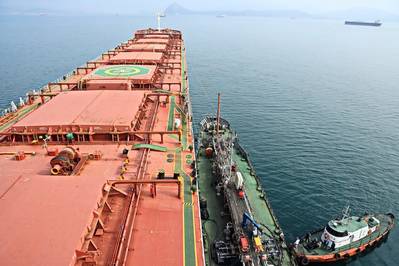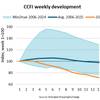Maritime Industry's Fuel Quality Issues Persist
Ongoing concerns around fuel quality continue to be a critical factor and significant expense for the maritime industry, according to the Lloyd’s Register (LR) Fuel Quality Report 2024.
The report, produced by LR’s Fuel Oil Bunker Analysis and Advisory Service (FOBAS), reveals the overall state of fuel quality in 2024 remains much like that of the past few years, particularly since the transition to predominantly very low sulphur fuel oil (VLSFO) in 2020. Persistent issues such as cat-fines, stability, sulphur content, and flash point continue to be challenging, and isolated incidents of chemical contamination are still occurring.
The report also outlines the growing adoption of biofuels, with an increasing number of ship operators starting to use biofuels onboard on a regular basis or at least trialing to gain necessary experience.
Looking ahead, the report considers the implications of the newly implemented ISO8217:2024 standard, as well as the EU ETS and other regulatory pressures from IMO, EU, and the broader industry. This shift is expected to drive the growth of the multiplicity of the biofuel supply market, which could present challenges related to availability, costs, and fuel quality control. Additionally, there is continuing development and progress on alternative fuels, such as methanol, hydrogen and ammonia.
Andrew Shaw, Managing Director, Lloyds Register FOBAS, said, “As a classification society with an industry-leading fuel testing business and portfolio, Lloyd’s Register is uniquely positioned to support the maritime sector in its pursuit of operational excellence and environmental responsibility. Our end-to-end assurance technologies and comprehensive approach to measuring and tracing fuel quality and GHG emissions set us apart.
“With the publication of our Fuel Quality Report 2024, Lloyd’s Register is providing essential data and insights that will help our clients make informed decisions on marine fuel purchases. Our analysis not only highlights the most common parameters exceeding specification limits but also delves into the findings of non-standard forensic tests, which have proven crucial for detecting external chemical contamination in fuel.”













